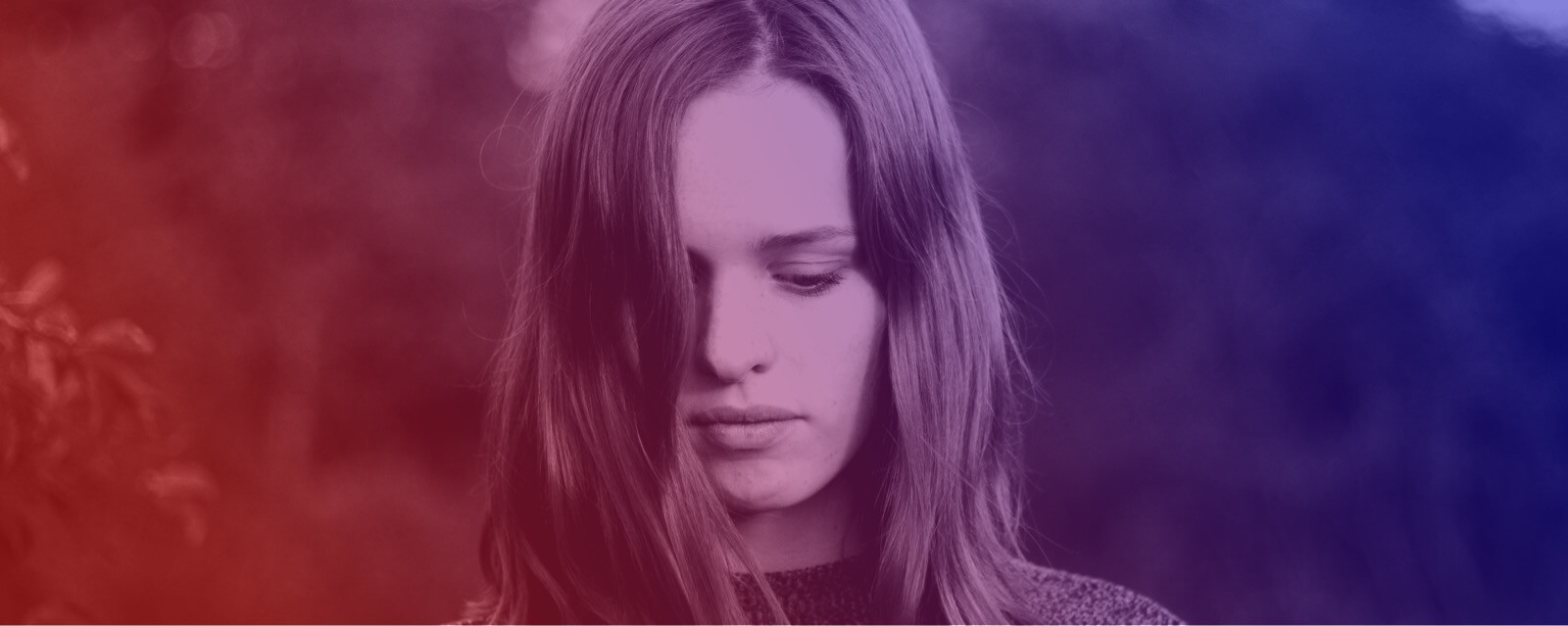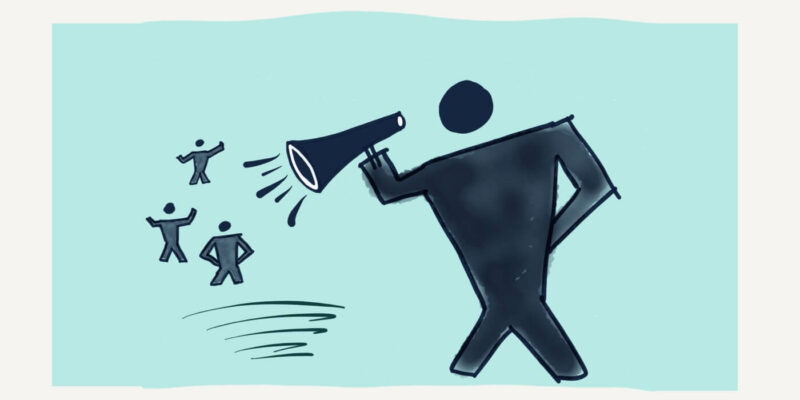Ashley has a problem: She never stops feeling guilty.
The first time she met me for therapy, Ashley told me how the biggest goal in her life was to break up with her boyfriend. “He’s a great guy,” she quickly explained, “but I guess I just don’t see much of a future with us.”
I asked how long she had been feeling this way and her answer made my jaw drop: “Three and a half years,” she replied timidly.
Before I could say anything she hurriedly explained: “I know, I know, everyone keeps telling me I need to just break up with him, but I just can’t. Each time I have another pep talk with myself and get ready to tell him, I imagine how bad he’ll feel and chicken out. I’m so stuck…”
I asked her how she imagines she’ll feel when she tells her boyfriend she wants to break up. She paused and thought for a minute, then said, “Pretty guilty, I guess.”
While Ashley’s boyfriend situation was the most pressing and dramatic example of her struggles with guilt, it was wasn’t the only one. In fact, her entire life seemed to be dominated by guilt:
- Taking too long to unload her grocery cart in line… Guilty.
- Trying to say no to a friend’s request to go out tonight… Guilty.
- Letting mom’s calls go to voicemail rather than insta-answering… Guilty
Ashley suffered from a surprisingly common, but rarely diagnosed condition that I call Fake Guilt.
What is fake guilt, exactly?
We’ve all heard a lot about fake news in recent years. The basic idea is that people insert untrue stories in various media channels, many people see/read it and assume it’s true, and then feel outraged/terrified/depressed/etc. and make some sort of ill-advised decision (like whom to vote for) as a result.
Fake Guilt follows a similar pattern in that we end up making decisions based on sketchy evidence. We experience Fake Guilt when we feel guilty as a result of something we’ve done, even though nothing we did was actually wrong, immoral, or otherwise unethical.
In the example above, Ashley is preemptively feeling guilty about doing something she knows is not wrong. What’s going on here?
Guilt is the feeling we experience when we do something wrong, so why would Ashley be feeling guilty even though she hasn’t done (and doesn’t plan to do) anything wrong? Why is she experiencing Fake Guilt?
Fake guilt comes from a fear of sadness and helplessness
As a psychologist, it’s my experience that no matter how strange a person’s behavior or experience looks from the outside, there’s usually a reason for it. It might not be a reason that makes sense to me, but it usually makes sense to or is doing something for them, whether they’re aware of it or not.
So when I work with people like Ashley who tell me that they feel guilty even though they know they haven’t done anything wrong, I take them at their word. They’re as confused as anyone. And it’s my job to help them see why there might be a subtle kind of internal logic for them to feel guilty even though it doesn’t intellectually make sense.
After hearing story after story like this from client after client, here’s my diagnosis: The reason Fake Guilt shows up and sticks around so long is that we’re terrified of sadness.
How Ashley’s fear of sadness and helplessness perpetuated her fake guilt
When I really slowed Ashley down and had her imagine in detail what might happen if she told her boyfriend she wanted to break up, she was able to realize that there was more going on emotionally for her than just guilt. At first, she noticed some fear. She was afraid that he would be hurt and in pain.
When I asked her to be more specific about the pain and hurt she imagined her boyfriend experiencing, she said: “He would be crushed.” When I prodded her again to be more specific about “crushed” she teared up and explained, “He’d just be so sad.”
I validated for her that, yes, he would very likely feel sad. That’s how we feel when we lose something we love or that’s valuable to us.
“But what do I do about it?” She asked through her tears.
I replied, “I don’t know that there is anything we can do about it. Maybe it’s just sad and perhaps always will be, at least to some degree.”
“I just can’t stand the thought that he’ll be in so much pain and so sad and that I couldn’t help.” She said.
I asked her how that idea made her feel. “Sad,” she said. “And helpless. I hate it when I can’t make people feel better because then I just stay sad too.”
Guilt doesn’t feel good. But maybe it feels better than helplessness
My working hypothesis with Ashley was that she was hyperextending her sense of responsibility for her boyfriend’s feelings because it helped her avoid feeling sad and helpless. If she felt responsible for how he felt, she could feel more in control of the situation.
All of us have certain emotions that are especially painful and that we try extra hard to avoid—what I call emotional kryptonite. For Ashley, sadness, helplessness, and the lack of control that goes along with it was her emotional kryptonite—the thing she dreaded most in life. So as painful as her Fake Guilt was, maintaining it made a kind of sense for her because it allowed her to avoid or alleviate an even worse set of feelings.
Now, it’s not like Ashley was aware of all this. Her emotional substitution of Fake Guilt for sadness and helplessness was a habit she learned from a young age. And as a habit, it was by definition not totally in her awareness. But it was also something she could become more aware of. And once she did become more aware of it, she could start to examine the usefulness of that habit in her present life.
We had several discussions about how that habit of doing anything to avoid helplessness may have served her well as a young child in a very stressful and even dangerous circumstance. But, like an old app on our phone that hasn’t been updated in a while, it might not be very effective in her present life, and could even be holding her back.
Over time, Ashley experimented in small ways with a new philosophy of sadness and helplessness: That maybe they weren’t dangerous, and therefore, could be experienced and tolerated rather than immediately avoided.
As Ashley became increasingly tolerant of sadness and helplessness—both in herself and the people around her—she found it far easier to make difficult decisions without the constant looming pressure of Fake Guilt hanging over her.
In other words, she was able to stop feeling chronically guilty because she was able to let go of the need to control sadness, and instead, learned to live with it.
How to fight back against Fake Guilt
If you can at all relate to Ashley’s dilemma around Fake Guilt, I hope this story has been illuminating and a reason for optimism. It is possible to come out from under the burden of chronic fake guilt, but it does take some work.
Specifically, it takes the willingness to face up to uncomfortable emotions and increase our tolerance for them.
Here are a few ways you can begin to fight back against Fake Guilt or any other painful emotion.
Mindfulness
In its simplest form, mindfulness means the capacity to be aware of our experience without thinking about it or reacting to it. This includes emotion. Cultivating the capacity for mindfulness will help you to observe your emotions (including Fake Guilt) non-judgmentally and realistically. And if you can do that, you set yourself up far better for understanding them and managing them effectively.
Learn More: How to Start a Mindfulness Practice
Scheduled Sadness
Scheduled Sadness is a counterintuitive technique for desensitizing yourself to the pain of sadness. Most of us feel doubly sad when we experience a loss because our habit is to always run away from or try to eliminate the feeling of sadness. This trains our brain to be afraid of and reactive to sadness. But, by systematically approaching and being with our sadness, we can train our brains to be more accepting of and less sensitive to sadness.
Learn More: Scheduled Sadness: Why You Should Make Time to Be Sad on Purpose
Functional Analysis
Functional Analysis is a technical-sounding term for a simple idea: Instead of judging our emotions and reactions to things from a moral perspective, it can be helpful to look at them from a mechanical perspective. Instead of saying, I hate that I feel guilty all the time, Functional Analysis means asking, What function does feeling guilty all the time serve? What’s it doing for me? When you learn to approach your own psychology like a detective instead of a jury, good things tend to happen.
Learn More: Functional Analysis
Emotional Validation
Instead of treating our emotions as problems to be solved or threats to be avoided, what if we acknowledged them for what they are: a normal, if sometimes painful, part of the human experience—and as such, completely valid? In practice, Emotional Validation means acknowledging our emotions and reminding ourselves that how we feel is valid no matter how uncomfortable or painful. And then, instead of either wallowing in our negativity or demanding that it be gone, we have the willingness to get on with life however we may feel.
Learn More: Emotional Clarity: 6 Key Principles for Managing Your Emotions
Therapy or Counseling
They say that to a hammer everything looks like a nail. Which means that to a therapist, the solution to every problem is therapy. Biases aside, I do believe that psychotherapy or counseling can be a really valuable way to explore any aspect of your psychology or behavior—including Fake Guilt—that’s bothering you in a supportive, structured way.
Learn More: Does Everyone Need Therapy?
All you need to know
Fake Guilt occurs when you feel guilty as a result of something you’ve done or might do, even though in no way was it wrong or unethical. Fake Guilt functions as a substitute emotion, often the result of a habit of trying to alleviate or avoid sadness, helplessness, and the lack of control they imply.
In order to move on from chronic Fake Guilt, you must be willing to face up to and increase your tolerance for difficult emotions like sadness and helplessness. Using techniques like Mindfulness, Scheduled Sadness, or Psychotherapy, you can begin to bolster your tolerance of any painful emotion, and consequently, base your actions on moving toward your values rather than away from your fears.





33 Comments
Add YoursHi Nick,
I like this story and your hypothesis.
I found this article when trying to find: Is there a name for acting guilty because you think someone else will think you are guilty (even though you are not guilty)? In other words, being “caught in the act” trying to hide something innocent because you imagine another person will misconstrue it.
?
Thanks
my comment, continued …
Perhaps that should be distinguished from being falsely accused and then responding. I’m asking about behaviour before any accusation. Also, I’m asking about when you are indeed doing something (it’s not false to say you were doing it), but the intent was either good or not-bad – you just knew the other person might misconstrue the intention.
Actually I am confused. When I think bad about others, i feel guilt, when i donot, i feel bad about myself.. so I end up being confused, what should I do,,,
Pragati – a very relatable question, but don’t be too confused.
Yours is not an either/or scenario. When you think badly of others, it is not necessary to feel guilt. So too – and perhaps more importantly – not thinking badly about others does not necessarily lead to feeling bad about oneself. Don’t assume that just because you have these behaviours that they are always going to be this way. They are not cause and effect. You can change your behavioural ways of thinking.
My advice? Look inwards: find the reasons you feel bad about yourself. You may well find the reason you think badly of others. In my past, I have belittled others in my own mind in order to make myself feel greater. As you say, this only does the opposite, making you feel guilty and worse about yourself. Self-confidence, or whatever you want to call it, is only strong when it comes from within. It’s very difficult, because it means you have to look positively on your own flaws and see the room for change. If you believe you can change, then I believe you will start to look more positively on others as well.
For me it’s a long road, I hope it’ll be better for you!
Hello, this article helped me a lot. Thankyou for sharing.
I also wanted to ask that is it possible to not feel guilty in any situation. Recently a friend of mine betrayed me brutally and as she told (to someone else), that she knows how bad her deeds were but she can’t feel the guilt. I tried to ask her to validate her point of doing such a thing, but she had nothing. She explained that it’s really difficult for her to feel any sort of guilt, even if she knows that she’s wrong. Further explaining her situation, she is a person who usually like to avoid unpleasant situations in any possible way and instead of facing her problems she like to ignore them. She usually likes being in her own imagined world, always thinking and smiling about it. She’s quite some friction with her parents since childhood. She kind of avoids being sensitive towards anyone.
I hope you can help me with this :).
Thank you so much. As someone who needed a Mind Over Mood refresher, I valued all the techniques you explained as well as your obvious expertise in this kind of serious obstacle. I do suffer from social anxiety, so this “fake guilt” is magnified by quite a lot in my experience, and it can be extremely traumatic and unfortunately it reinforces the habit of shutting down and depending on coping mechanisms.
I have had success briefly with this issue in the past, but years went by and habits build up again. After reading this, this is now a time where I am again at a challenging time. But I’m ready to put in the work to keep myself consistent, unfettered, and basically more sane again. Thank you so much for your empathy and understanding, and sharing it with all.
Hello,i found this article while searching how to not feel guilty anymore,in my case hurting people’s feelings makes me really guilty like the example you shared about this women trying to leave her boyfriend,if the person is nice and that I value her I can’t leave her because I will feel guilty of being the reason why this person is sad but in the opposite situation if the person did something I assume wrong I assume he deserves every bad thing that happens to her and I can’t forgive her for example if my friend betrayed me and something awful happend to her way worst than being betrayed I will not feel an inch of petty or feel bad for her even if she apologizes and regret what she did I just can’t forgive bad people’s behaviour because I try so hard to be a good person with everybody ,never harm anybody but them,they can’t even avoid betraying it seems normal here but what I mean by betraying is really small things like I waited the bus with you last time and you can’t do the same for me, and now your mom died oh I really don’t give an f am over you
I found this after searching ‘How to stop feeling guilty all the time’ This article was incredibly insightful for me. I didn’t even know chronic fake guilt was a thing. It’s going to help me look at my circumstances differently. I really want to learn more about this. Thank you!!!
thank you so much… this helped me decrease my guilt feeling … i was not able to concentrate in my daily work bearing this fake guilt… now it seems to be ok
In my experience fake guilt can be the result of long-term emotional abuse when the victim assumes guilt before the abuser can lay it on him/her. It’s a symbolic way of fending off the attack before it lands on you.
Ben, I think for me, you have hit the mail on the head. I have felt guilty about anything bad that happened to anyone else since I was a child. Thought the article was compelling and gave me good ideas to work with, I believe my issues stem from abuse early in life. Medication for depression helps but doesn’t really stop the “guilties”.
Hi nick, thank you for this article, I spend a lot of my time existing in fake guilt or ‘survivor guilt’, really appreciate the steps you’ve laid out here.
Thanks for this article. I suffered from fake guilt for a long time and tried to avoid dealing with the end of my 20-year marriage to a man I had loved very deeply. I live with periodic moments of sadness but have also felt happiness and positive moods after 2 years of counselling.
I wonder how often “fake guilt” occurs in People Pleasers that don’t want to make any else unhappy so they don’t make any decisions – what do you think?
This shows up with simple stuff like “where do you want to go to dinner?” The People Pleaser will answer with a question – “where do you want to go”?
Thanks for the article Nick. Definitely gave me some food for thought- I’d never even heard of Fake Guilt before, but it certainly goes some way to explaining some of the unhealthy behaviours over the years.
I’m going to have to bookmark this article for future reference. Thanks again!
Thank you for this article, definitely made me think! I’ve recently realised that I’m battling with guilt over having been very ill earlier this year (Jan-Mar), meaning I couldnt work for over a month, and it took another month for met to actually be able to do what I had done before. It’s frustrating as I can rationally look at it and accept that it wasnt something I did or chose, and I did my best to get back to work as soon as possible, but guilt still feels like it’s tearing me up inside.
I’ll have a look at those suggestions you posted. It’s just frustrating that I can tell it’s unfounded but still can’t get rid of it 🙁
Ok I love this so much. I’ve been dealing with this but didn’t know how to phrase it. Thank you!
Hello i would like to ask if whats wrong with me
I feel guilt but for only a short period (minutes) then after that its all pleasure like nothing happened, also i like dangerous moments and i seem to lack emphaty
Hi Devanshi. I think you have asked a very important question. When you say “no guilt” it sounds like your friend suffers from high narcissistic tendencies and this is generally brought about from childhood trauma. Its very sad but in my experience people with a narcissistic personality can be very damaging to be in a relationship with – especially for those of us who are prone to guilt.
This article helped me a lot.
I always feel guilty for all the problems of the world.
Like when I am eating I will feel guilty that so many people and child in this world die of hunger so many do not have food to eat. And I will feel guilty that I have food to eat.
When I am happy or having a peaceful moment I will feel guilty that so many labor and people have to work for like 12 hours they do not have free time for themselves to enjoy and I feel guilty and I have moments to relax and enjoy.
My name is Tinashe,, I’m from Zimbabwe,, I’ve this problem of fake guilt, i started to just kind of feel guilty and sad since i reached 20 now I’m 25,,but my fake guilty is deferent i just kind of feel guilt like some kind of xenophobic fear of the unknown,I’m really scared of thos behavior because now I’m becoming a heavy drinker to remove this feeling, it’s like when someone does anything i kind of have a feeling that i will be the one to blame though i will have nothing to do with anything,,, i think I’m going crazy on this feeling, it’s giving me low self esteem, i don’t even have a girlfriend nor I’ve never had one but i try to hide it by being talkative and all but this feeling always come by,, i really need some help
Wow, great article. I think my guilt is a result of my mom always judging. Always spewing out her thoughts without a filter. I can almost feel myself flinching as she put someone down
Thank you for what you do, Nick.
Useful video conoscereragazzi.tausterunenro.cf
Thank you so much for this article. You articulated what I am experiencing so well and I’m so grateful to have the awareness of what is going on because I’ve never seen it in this way. Much gratitude to you.
Thank you this article is an eye opening! I constantly feel guilty for no reason and am absolutely terrorized at the idea of making anyone sad (which I have noticed is backfiring at me with my kids!!). Now I know I can look at it as two sides of the same coin. Developing a tolerance for “sadness and disappointment” which are a part of what life is made of sounds so exciting right now. I will meditate on that. Thank you again!
I feeel guilty because of a combination of a mis-understanding on my part and mis-information or poor guidance from my attorney. He did a lot of work and now I can’t really use what he did and we have to change the plans. He’ll still collect some fee and whatever it is i told him I’m sure it will be fair. I don’t usually feel guilty, but this time I do. But I really didn’t do anything wrong, except perhaps not do enough research or ask him enough questions. Not sure if this is fake guilt. I have a moral compus that usually guides me. But this time, I feel guilty
Thank you Nick You basically described me and your suggestions give me hope and encouragement. It makes a lot of sense to me.
Thanks I can relate to this article totally.I also find it hard to tolerate and accept any negative emotion.Something I will have to learn to deal with.
Thanks for sharing this concept about fake guilt. I am still not very sure how it applies to me but the coping suggestions sound useful. U see, I think I did something wrong because I might have hurt them with my words. And after that I started to question myself if I should have not said so and so in such a manner, I could have done better, and started to feel bad and guilty about making someone else possibly feeling bad. But on the other hand, I am not wrong to say what I needed, just wondered if I was unnecessarily harsh and started questioning my morality and character, that maybe I’m a shit person projecting my weaknesses onto others as if they were the ones with issues. Gosh and I can’t stop feeling lousy..
This is very helpful and makes so much sense. I also wonder though — since we’ve been socialized to feel responsible for the feelings of others, we do think we’re doing something morally wrong when we take an action or make a choice that results in pain in another person. Especially for women in the US who have been socialized to suppress their needs/wants and to be “nice”. There’s also the conditioning by parents that if we disappoint them they won’t love us, so there’s a fear of abandonment. I think all three ideas are acting here – we need to understand it’s not morally wrong to take an action that results in someone feeling pain (aka make someone sad, even our language reflects the socialization) and then be comfortable weathering the sadness/helplessness we feel, and be able to withstand the thought that someone might then not like us.
Hi Nick, the scheduled sadness or the scheduled worrying (which you talked about in one the podcasts with Daniel) sounds very scary to me. 🙂
I am afraid the sadness or worrying will be set off on a turbo mode if I give them a full charge and will not stop when the scheduled time window is over (being it 15 minutes or 20 minutes). As such, I find it difficult to have confidence in this type of approach to treat anxiety. Looking forward to hearing your thoughts.
I think what people should remember (before they get married or date someone a long time) is that “breaking someone’s heart” in the short term is better than making them live -the rest of their lives- with someone who doesn’t love them as much as they should be loved by another person. Also, that the longer you’re with them the more it’s going to hurt them. Seeing it from the other persons view point should help people deal with the guilt. Sometimes things look different through the other person’s view. (If you were them, would you rather have a heart break in the short-term or have someone lie and say that their in love you every day.) And if you do break it off, do it in the most kind but firm way. Explain that while you care a lot about the person and don’t want to hurt them, that you just need to do what’s best for you both in the long-term. If someone doesn’t like (or even hates) you after you share your genuine feelings with them and still insist you should be together, even though it’s not what’s best for you, they’re being selfish.
I’d honestly feel more guilty about making someone think that I care more about them than I do. That’s selfish.
The Psychiatrist should’ve just told her she needs to stop worrying about how his pain would make her feel.
Sometimes reasoning things out instead of psycho-analyzing everything is better and quicker.
I think Psychiatrist don’t wanna be straightforward with people because they won’t get the money if they are. Or they’re so busy with the practice of psychiatry that they focus on the person’s condition rather than a help correcting a personality flaw. But you’re actually hurting people if you’re not straightforward with them.
I know that fake guilt is a real thing. But in serious matters like that…come on!